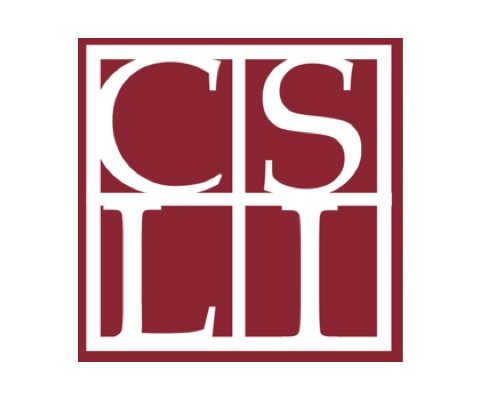Back to series


Questions and Answers From Children About God
Learn more in our Dawn Treader Magazine
Theodore: Why, Freesia! I wasn’t expecting to meet you here. How are you doing?
Freesia: Oh, pretty well. I actually wasn’t expecting to be here, either; I only came to this evening Bible study class because my parents want me to.
Theo: Well, that’s a good enough reason to come, I suppose.
Free: I don’t know. At my age, Theo, don’t you think I ought to be making up my own mind?
Theo: Certainly; but you did, didn’t you? You had to decide whether or not to obey your parents. Everybody makes their own decisions as to whether or not do the right thing (hard though it might be) or to do the wrong thing and bear the consequences. We all have that free choice, but it doesn’t change the truth of the duty of obedience or the necessity of consequences to our
actions.
Free: Ye-es. But sometimes I wonder whether I can genuinely consider myself a Christian when I didn’t decide to become one on my own. My parents brought me up this way, and I know I’m supposed to obey my parents because the Bible says so, but if I only believe the Bible because I’m obeying my parents . . . I feel like I’m reasoning in a circle.
 Theo: Well, Freesia, we don’t believe the Bible just because our parents taught us to, but because the Bible is true. As we carefully look at the Bible and its history, claims, and impact, we realize that it is the True and Living Word of Jesus Christ Himself. Similarly, we don’t become Christians just because our parents brought us up that way, but because we ourselves make the decision to accept Jesus as our Savior. The fact that we may have been influenced by our parents, or others, doesn’t mean that we haven’t made our decision freely. Our culture, unfortunately, has a confused understanding of how we make decisions freely. We are taught that unless we make up our mind on something without any outside influences or pressure, it isn’t our own decision; we can blame it on our parents or society or circumstances or our personalities or even God. But the fact is that to step outside of everything and simply pick and choose our decisions in life, apart from any influence or consequences, is impossible. Everybody obeys something. Those who insist upon doing everything “their own way,” carefully opposing everything their parents taught them or any other form of “authority,” are really just obeying the modern culture — and the devil, since rebellion is his entire scheme against humanity, and has been since the Garden of Eden.
Theo: Well, Freesia, we don’t believe the Bible just because our parents taught us to, but because the Bible is true. As we carefully look at the Bible and its history, claims, and impact, we realize that it is the True and Living Word of Jesus Christ Himself. Similarly, we don’t become Christians just because our parents brought us up that way, but because we ourselves make the decision to accept Jesus as our Savior. The fact that we may have been influenced by our parents, or others, doesn’t mean that we haven’t made our decision freely. Our culture, unfortunately, has a confused understanding of how we make decisions freely. We are taught that unless we make up our mind on something without any outside influences or pressure, it isn’t our own decision; we can blame it on our parents or society or circumstances or our personalities or even God. But the fact is that to step outside of everything and simply pick and choose our decisions in life, apart from any influence or consequences, is impossible. Everybody obeys something. Those who insist upon doing everything “their own way,” carefully opposing everything their parents taught them or any other form of “authority,” are really just obeying the modern culture — and the devil, since rebellion is his entire scheme against humanity, and has been since the Garden of Eden.
Free: That sounds alarming. But isn’t freedom a good thing? It doesn’t necessarily have to be rebellious.
Theo: Whether or not freedom is a good thing depends on what you are free from. The Bible teaches us that God has freed us from our sins – that is true freedom. We are no longer under the control of evil desires and bad tempers and uncontrolled impulses that keep us from being, not only the kind of people God wants us to be, but the kind of people we really want to be. However, that doesn’t mean that we can now do just whatever we feel like doing, because “we are not our own,” as Paul wrote in 1 Corinthians 6:19.
Free: What does that mean?
Theo: It means that we were created to be in God’s service, not sin’s. And as The Book of Common Prayer puts it, “His service is perfect freedom.” People who are free are free to be themselves. And we were created by God to be the kind of people He intended. So when we obey Him, we are really being our truest selves, and so are at last truly free. C.S. Lewis said: “The more we get what we now call ‘ourselves’ out of the way and let Him take us over, the more truly ourselves we become… It is no good trying to ‘be myself’ without Him. The more I resist Him and try to live on my own, the more…what I so proudly call ‘Myself’ becomes merely the meeting place for trains of events which I never started and which I cannot stop… It is when I turn to Christ, when I give myself up to His Personality, that I first begin to have a real personality of my own.”
Free: But how does this connect with obeying my parents, or any other form of authority?
Theo: True authority always upholds God’s. When the Bible commands us to obey “the higher powers… [f]or there is no power but of God: the powers that be are ordained of God” (Romans 13:1), it is because this obedience to created authorities will help to shape us into the kind of people God created us to be, in obedience to Him. But whenever any kind of authority tries to set itself up against God’s and force us to behave differently from the way we were created, then, as followers of Christ, we have the freedom to say, “We ought to obey God rather than men” (Acts 5:29). You can’t get away from obedience; freedom just means that you only ever obey the right commands, the best ones for everyone! And so if you are obeying God by obeying your parents in coming to Bible study class, then you are a truly free and truly obedient person; and that’s two good things at once!
Free: You make it sound like fun!
Theo: Obedience is fun when you obey God, since His plans for us are always directed toward the final end of eternal joy!
Ask your children
What do you think about Theo’s answers to Freesia’s questions? Do you have any other questions of your own that this dialogue has brought up for you? Challenge them to think up more responses they could give, if someone asked them a question like Freesia’s.
Notes:
1 In Issue 1.5 of the Dawn Treader, Theologian Theodore has a discussion about the question “How Do We Know the Bible is Always Right?”
2 The Book of Common Prayer, Morning Prayer Service, “A Collect for Peace.” Church Publishing, Inc. (September 1, 1979).
3 C.S. Lewis, Mere Christianity, 50th Anniversary ed. (London: HarperCollinsPublishers, 2002), pp 225-226.
C.S. Lewis Institute
Author
C.S. Lewis Institute, in the legacy of C.S. Lewis, works to develop wholehearted disciples of Jesus Christ who will articulate, defend, share, and live their faith in personal and public life. Founded in 1976 by Dr. James Houston and James R. Hiskey, the Institute provides leading teachers who address important issues of the day from the perspective of Biblical orthodoxy, while also providing discipleship for individuals in small groups.

 COPYRIGHT: This publication is published by C.S. Lewis Institute; 8001 Braddock Road, Suite 301; Springfield, VA 22151. Portions of the publication may be reproduced for noncommercial, local church or ministry use without prior permission. Electronic copies of the PDF files may be duplicated and transmitted via e-mail for personal and church use. Articles may not be modified without prior written permission of the Institute. For questions, contact the Institute: 703.914.5602 or email us.
COPYRIGHT: This publication is published by C.S. Lewis Institute; 8001 Braddock Road, Suite 301; Springfield, VA 22151. Portions of the publication may be reproduced for noncommercial, local church or ministry use without prior permission. Electronic copies of the PDF files may be duplicated and transmitted via e-mail for personal and church use. Articles may not be modified without prior written permission of the Institute. For questions, contact the Institute: 703.914.5602 or email us.
Speakers

C.S. Lewis Institute
Author
Team Members
C.S. Lewis Institute
Author
C.S. Lewis Institute, in the legacy of C.S. Lewis, works to develop wholehearted disciples of Jesus Christ who will articulate, defend, share, and live their faith in personal and public life. Founded in 1976 by Dr. James Houston and James R. Hiskey, the Institute provides leading teachers who address important issues of the day from the perspective of Biblical orthodoxy, while also providing discipleship for individuals in small groups.


